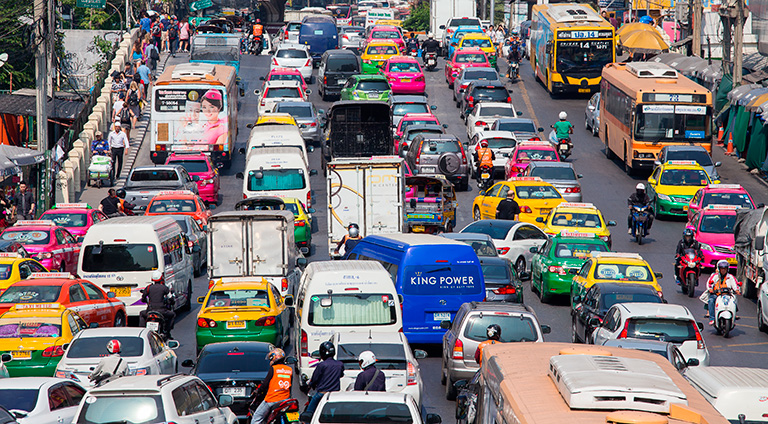Traffic-jam,-Bangkok-shutterstock_278669981.jpg

Traffic jam in Bangkok, Thailand
The World Bank, the Philippines Department of Transportation and Communications (DOTC) and Grab, a popular ride-hailing platform in southeast Asia developed the OpenTraffic Initiative, a set of tools that use big data to address congestion and road safety challenges.
DOTC secretary Joseph Emilio A. Abaya said the tool could be a potential solution to the challenges overcrowded transport systems face.
“Through this we can provide accurate, real-time information for initiatives that can help alleviate traffic congestion and improve road safety,” he said.
OpenTraffic uses real-time data collected by Grab, including speeds, flows and intersection delays, which are then analysed by the tools, for example to identify road incident black spots and improve emergency response.
The information will also be used to help engineering units prioritise crash-prone areas for interventions.
Analysis of flows during peak hours and travel time reliability data can also be used to design travel demand and management policies and flexible re-routing schemes to help divert traffic in the event of an accident.
Holly Krambeck, World Bank senior transportation specialist, said the big data tool will allow the Philippines to leapfrog traditional approaches to road safety, traffic management and planning.
The pilot of the platform began today in Metro Manila and Cebu City in the Philippines, but the World Bank and Grab said they plan to make OpenTraffic available to other southeast Asian governments in the near future.







